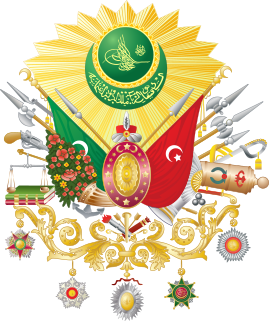 W
WThe American entry into World War I came in April 1917, after more than two and a half years of efforts by President Woodrow Wilson to keep the United States out of the war.
 W
WGreat Britain entered World War I on 4 August 1914 when the king declared war after the expiration of an ultimatum to Germany. The official explanation focused on protecting Belgium as a neutral country; the main reason, however, was to prevent a French defeat that would have left Germany in control of Western Europe. The Liberal Party was in power with Prime minister H.H. Asquith and foreign minister Edward Grey leading the way. The Liberal cabinet made the decision, although the party had been strongly anti-war until the last minute. The Conservative Party was pro-war. The Liberals knew that if they split on the war issue, they would lose control of the government to the Conservatives.
 W
WFrance entered World War I when, after mobilizing on 1 August, its government declared war on Austria-Hungary on 11 August 1914.
 W
WGermany entered into World War I on August 1, 1914, when it declared war on Russia. In accordance with its war plan, it ignored Russia and moved first against France–declaring war on August 3 and sending its main armies through Belgium to attack Paris from the north. The German invasion of Belgium caused Britain to declare war on Germany on August 4. Most of the main parties were now at war. In October 1914, Turkey joined the war on Germany's side, becoming part of the Central Powers. Italy, which was allied with Germany and Austria-Hungary before World War I, was neutral in 1914 before switching to the Allied side in May 1915.
 W
WWhen World War I broke out in August 1914, Italy declared neutrality. Although nominally allied with the German Empire and the Empire of Austria-Hungary in the Triple Alliance, the Kingdom of Italy did not join the Central Powers; in fact, Germany and Austria–Hungary had taken the offensive while the Triple Alliance was supposed to be a defensive alliance. Moreover, the Triple Alliance recognized that both Italy and Austria-Hungary were interested in the Balkans and required both to consult each other before changing the status quo and to provide compensation for whatever advantage in that area: Austria-Hungary did consult Germany but not Italy before issuing the ultimatum to Serbia, and refused any compensation before the end of the war. Italy negotiated for a better deal with the Allies, especially in terms of gaining territory from the Austro-Hungarian Empire. However, Russia had its own pro-Slavic interest in that region, and complicated negotiations. Russia's negotiating position was greatly weakened by its heavy military losses. London and Paris insisted and Russia, by April 1915, abandoned its support for most of Serbia's claims and accepted terms for Italy's entry into the war, which would limit the Russian strategic presence in the postwar Adriatic. Italy accepted the Allies’ offer in which Italy would receive a slice of Austria and a slice of the Ottoman Empire after the defeat of Austria-Hungary. This was formalised by the Treaty of London. In 1915, Italy entered the war joining the Triple Entente.
 W
WThe Ottoman Empire's entry into World War I began when two recently purchased ships of its navy, still manned by their German crews and commanded by their German admiral, carried out the Black Sea Raid, a surprise attack against Russian ports, on 29 October 1914. Russia replied by declaring war on 1 November 1914 and Russia's allies, Britain and France, then declared war on the Ottoman Empire on 5 November 1914. The reasons for the Ottoman action were not immediately clear. The Ottoman government had declared neutrality in the recently started war, and negotiations with both sides were underway.
 W
WRussia entered World War I in the three days succeeding July 28, 1914 — beginning with Austria-Hungary's declaration of war against Serbia, a Russian ally. Via St Petersburg, the Russian Empire sent an ultimatum to Vienna warning Austria-Hungary not to attack Serbia. Following the invasion of Serbia, Russia began to mobilize its very large reserve army. Consequently, on July 31, the German Empire in Berlin demanded Russian demobilization. There was no response; hence, on the same day, Germany declared war on Russia. In accordance with its war plan, Germany ignored Russia and moved first against France by declaring war on August 3, and by sending its main armies through Belgium to surround Paris. The threat to France caused Britain to declare war on Germany on August 4. The main belligerents had been established.